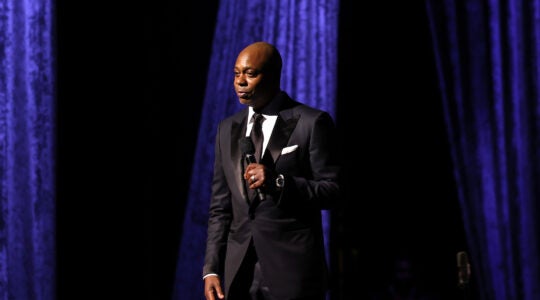On a grim, gray day in the winter of my 12th year I was trudging through February slush on Sherbrooke Street in Montreal, when I saw on the marquee of the old Kent Theatre, “Ten from Your Show of Shows.”
I crossed the street to examine the poster for a retrospective of the 1950s career of Sid Caesar, 10 of the best skits from a show I was vaguely aware of as influential. Maybe Carol Burnett, whom my mother idolized, had mentioned it in an interview? Maybe it had come up in a history of comics as a progenitor of Mad Magazine, which then obsessed me?
I paid maybe $2 for a kid’s ticket and went in. The Kent was a cavernous old place that played not even second-tier films but movies that would never attract blockbuster crowds. My neighborhood, Notre Dame de Grace, was not quite working class, but it was not the kind of neighborhood where a cinema would pull in folks from the better parts of Montreal. The Kent got the weird movies no one else wanted: Dustin Hoffman’s misbegotten “Alfredo, Alfredo,” Sergio Leone’s lesser works.
So I sat through the movie’s first nine skits, and I was impressed: Even at a dim and hormonal 12 I could recognize innovators and their importance to what followed. The economy of the scripts, the precision of the delivery by Caesar and Imogene Coca, even Carl Reiner’s deft straight-man turns; it was the first time I became consciously aware of the importance of pacing for both comics and straight men.
And then I saw the 10th skit, and for the first and one of the only times in my life, in a dark and mostly empty theater, I fell out of my seat laughing. Literally. I laughed nonstop for 10 minutes, I laughed until I teared, until I hurt. My laughter that winter’s day remains one of my most vivid childhood memories.
In The New Yorker this week, David Margolick, who is writing a book about “Your Show of Shows” describes “This Is Your Story” as probably the best Caesar sketch, and I’ve seen it called the funniest TV sketch ever. Separately, in Tablet, Margolick identifies the Jewish roots of Caesar’s comedy.
Which is funny, because since Caesar died last Wednesday, I’ve been thinking about how Jewish this particular sketch is.
Analyzing humor often kills it, although I’m pretty sure this sketch is impervious, but watch it first.
The premise is a parody of “This Is Your Life,” and the ostensible humor is in the counterintuitive take, in the same way that the contemporaneous Mad Magazine turned white-bread suburban Archie and Jughead into murderous urban punks and sunny Mickey Mouse into a vicious, dissolute backstabber.
Caesar’s character, Al Duncey, is not at all flattered to be the subject of a review of his life; in fact, he does his best to flee the studio. And when he finally submits, it is not to the hesitant, sweet reunions with old friends that characterized the actual show, but to insistent, physical, all but carnal encounters with relatives and mentors.
But there’s more here than upside-down novelty, and it’s evident from the sketch’s first seconds.
“This Is Your Life” was a kind of surprise party. The honoree was lured into a studio under false pretenses — often by being invited to a friend’s “This is Your Life” shoot — and then was surprised when the host selected him or her.
On “This Is Your Story,” Reiner, the host, steps into the audience, leans in to a couple of decoys and says, “Could it possibly be your life, sir?” One plant recoils. Another, sitting next to Caesar, looks terrified, and Caesar, smirking, leans into the shot and gives his neighbor the “What a rube” thumb.
Except, the designee turns out to be Caesar, as Al Duncey, and all hell breaks loose as Duncey attempts to flee at all costs.
Margolick, in Tablet, says that Mel Tolkin, a lead writer for the show, would routinely warn his team, “Jews all over America will be watching Saturday night!”
On some level of consciousness, these Jewish viewers would understand the resonance of a larger-than-life figure bearing a book and walking among the masses, crying out, “Could it be your life?”
Reiner, as the host, was God, and this was a day of terror, or as we neuter the term in English, a day of awe. What is more terrifying than a reckoning of a life, the stripping away of denial?
After Duncey is wrestled to the stage by four ushers, one by one emerge the people who made him who he is and who are so thrilled to see him they can barely control themselves.
First, there is Uncle Goopy who “helped you in those desperate years when you needed help so much,” then there is Aunt Mildred all the way from South Africa, and Mister Torch, the “kind and gentle old fireman” who rescued him from atop a burning building. (“Who by fire?”)
Al greets each with tremors of anxiety, and yet also with unyielding love, and they each return it, and with each encounter the embraces get more… intimate. At first it seems Howard Morris as Uncle Goopy wants to kiss Ceasar on the lips, and eventually, he just does. And the fireman, too.
There’s a mid-20th-century Jewish resonance to these embraces, these expressions of love, of reassurance. One of Caesar’s gifts was persuasively mimicking languages, a talent he said he picked up listening to the clientele at his father’s Yonkers luncheonette. The upheavals of the last century, more than any previous, dislocated people, tore them from their families, their friends, their homelands, and no people were more dislocated than the Jews. Listening to his father’s clients speak in alien tongues, Caesar must also have heard the anxiety in their hearts.
And with dislocation, there is survivors’ guilt. Did you do right by the people who “helped you when you needed so much help?” who disappeared into distant lands, who rescued you from the flames? And, before the Internet, before the virtual ubiquity of our collective past on social media, how could one ask from these people forgiveness around the Days of Awe?
One of the funniest elements of the sketch I haven’t seen pointed out elsewhere (I’ve read a lot about this sketch) is that Al Duncey is a nobody, an everyman. But “This Is Your Life” was for the accomplished, the well-known, the remarkable. (Or at least it was until the 1960s, when it seems to have embraced the Caesar parody as a template.)
Duncey is a nobody from Darling Falls, Mont. Except he isn’t: He is EveryJew.
JTA has documented Jewish history in real-time for over a century. Keep our journalism strong by joining us in supporting independent, award-winning reporting.





